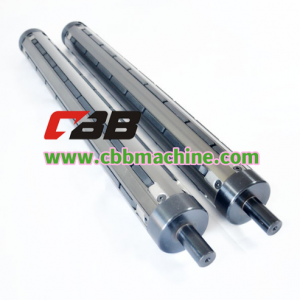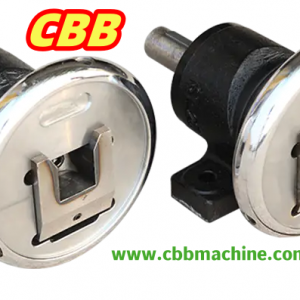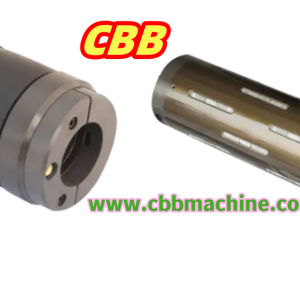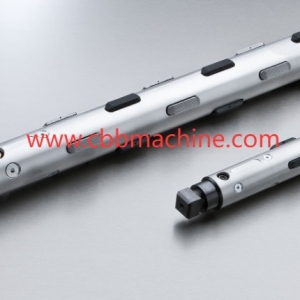In the world of advanced machinery, the Differential Air Shaft has become a critical tool for managing complex winding applications, and the brand Cbbmachine is known for implementing this solution with care and precision. The combination reflects a practical approach to balancing control, adaptability, and durability in modern production lines.
At the heart of this shaft design lies the ability to handle multiple rolls with different tension requirements while maintaining overall harmony. Instead of forcing uniformity, the shaft adapts to variations, allowing each roll to move according to its needs. This ensures consistent tension control and smooth operation, even in demanding environments where precision cannot be compromised.
The system's design provides a unique balance between flexibility and stability. In winding and unwinding processes, where materials often differ in thickness or elasticity, the shaft ensures that these differences do not translate into production flaws. The result is a process that runs reliably, reducing waste and enhancing the overall quality of output.
Durability is another defining aspect. By distributing loads evenly and avoiding unnecessary pressure on a single roll, the system reduces mechanical stress. This design minimizes wear and extends the working life of equipment. For production environments that demand continuous operation, such reliability reduces downtime and supports more predictable workflows.
Adaptability across various industries further strengthens its relevance. The same principle can be applied to packaging, printing, film processing, textiles, and other sectors. This cross-industry usability simplifies integration and allows companies to standardize their approach while still meeting the specific needs of different applications. Engineers value this versatility, as it enables them to manage complexity with a unified solution.
Precision is equally significant. The ability to fine-tune control ensures that materials are handled gently yet firmly, preventing stretching, tearing, or uneven winding. This careful management improves efficiency and safeguards product integrity, two qualities that directly influence customer satisfaction and long-term business success.
Beyond technical advantages, this type of shaft also represents a strategic investment. Companies that adopt it are not merely addressing present needs but are also preparing for future demands. By choosing a system that adapts naturally to variations, businesses position themselves to remain resilient in changing markets. Stability today creates a stronger foundation for innovation tomorrow.
Another dimension worth noting is the efficiency gained from reduced maintenance. When mechanical stress is minimized, service intervals can be extended, freeing teams from constant adjustments and interruptions. This reliability means more energy can be focused on growth, optimization, and creative problem-solving, rather than on recurring technical issues.
Modern industry increasingly values harmony between adaptability and control. The differential principle reflects this balance, turning what could be seen as complexity into an advantage. By enabling systems to work with variation instead of resisting it, the shaft ensures that production remains both steady and responsive.
For businesses considering their next step in upgrading machinery, the qualities of resilience, adaptability, and precision form the foundation of lasting success. A differential air shaft is not just a component; it is a signal of a forward-looking approach to manufacturing.
If you are ready to rethink how control and adaptability can align in your operations, the path is already open. Visit https://www.cbbmachine.com/news/industry-news/differential-air-shafts:a-new-trend-in-high-speed-slitting.html and experience how one decision today can set in motion a smoother rhythm for tomorrow's production.










